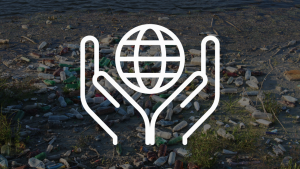Innovating the plastics value chain
The transition to a circular economy is one of the absolute cornerstones in the fight against the climate crisis. As plastics are increasingly used in everyday products, efficiently reusing and recycling is becoming more important than ever. Furthermore, plastic, made from fossil fuels, has unprecedented impacts on the planet and climate change. For this reason, EIT Climate-KIC is developing a portfolio of solutions for action on plastic pollution, supporting both start-ups and research projects innovating all along the plastic value chain.
In 2019, around 370 million tonnes of plastic were produced worldwide, of which almost 58 million tonnes were produced in Europe alone. Only 30 per cent of plastic waste is recycled in Europe. Recycling all plastic waste worldwide could save an amount of energy comparable to 3.5 billion barrels of oil per year, which would have a significant impact on our carbon footprint.
According to the report “The Circular Economy. A Powerful Force for Climate Mitigation” by EIT Climate-KIC and Material Economics, global plastic production will double to over 800 million tonnes per year by 2050. As a result, plastics will become one of the main contributors to future fossil fuel use, with a direct impact on CO2 emissions. The report also emphasises that combined emissions from plastic production and embedded carbon would be as much as 287 billion tonnes by 2100, which equates to over a third of the entire carbon budget for a 2°C economy. A successful transition to a low carbon economy, therefore, requires tackling the CO2 emissions from plastics, and reusable alternatives, new materials and more sustainable solutions are needed to reshape the current plastics value chain.
To innovate the plastics value chain, EIT Climate-KIC implemented the eCircular project, which focuses on product redesign with a strong emphasis on eco-design, addressing the need to reconceive how products are being conceptualized. As part of this initiative, EIT Climate-KIC produced a clear system overview of the greenhouse gas emissions from the entire plastic value chain, to demonstrate the need to reduce the impact of plastic on the environment. The graphical representation – that shows in detail an accurate picture of greenhouse gas emissions from plastics and their impact on the climate – was created in collaboration with designers from Unbeaten Studio.
Full story and infographics at Climate-KIC.



